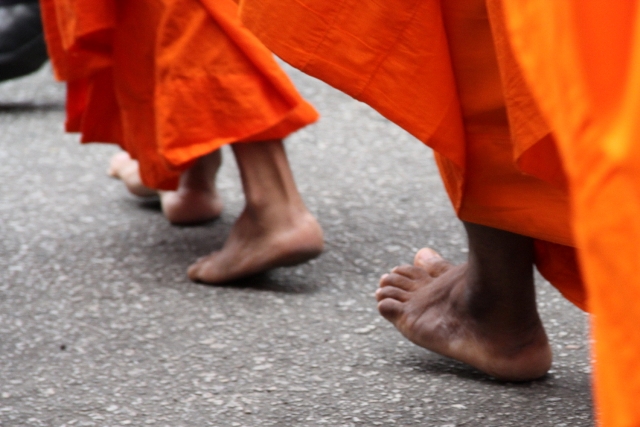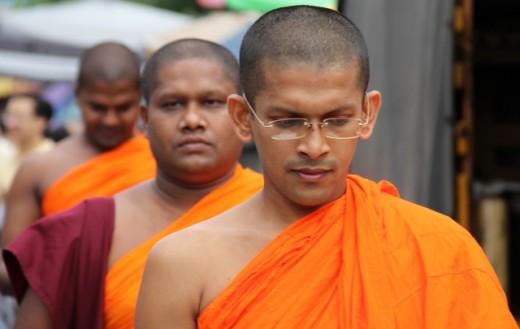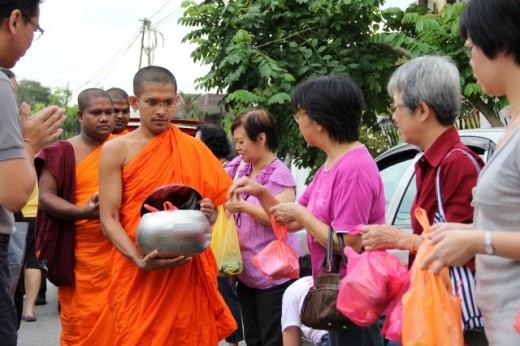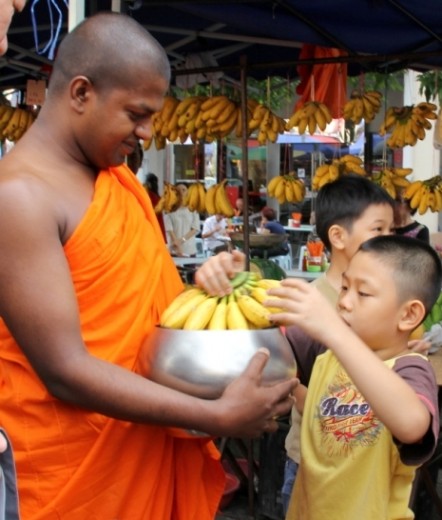Pindacāra – A Buddhist Heritage
Pindacāra – A Buddhist Heritage
6 October 2012
Pindacāra, the practice of collecting alms-food, is observed by Theravada Buddhist monks who have gone forth from ‘home-life’ to ‘homelessness’.
Amidst the hustle and bustle of the Saturday morning market at Taman O.U.G., three Sangha members, a team of Nalandians and volunteers brought a different energy to the usual morning monotony. With zest and high morale, the team was determined to spread the joy and inspiration in practising the ancient tradition of Pindacāra (alms-round).
In Buddhist countries such as Thailand and Myanmar, it is a daily ritual for monks to go on Pindacāra, where they walk through a village from one household to another, allowing devotees to make food offerings.
During this fifth monthly Pindacāra session, many devotees came prepared and were already waiting in line for the arrival of the Sangha members.
Doing good deeds daily is a way of self-cultivation and to live a noble way of life. The proper way for the laity to offer alms is to perform it joyfully, mindfully, and respectfully towards the monks.
As the team graciously invited and explained the significance of giving alms, more market-goers stood in line to make offerings with faith and devotion. It was heart-warming to observe the wholesome seeds of Dhamma sown in their hearts.
May you nourish and sustain this body, keeping it healthy, and continue with the noble way of life.
Upon completion of the one-hour alms round, many Nalandians, devotees and friends gathered at the NEO Centre in Happy Garden, where the Director of Nalanda Institute, Mr. Vijaya Samarawickrama, gave a Dhamma sharing on the significance of performing dana.
By offering food, we are actually giving health, happiness, beauty and longevity. The purpose of giving is to reduce lobha (craving), dosa (anger) and moha (ignorance). By giving away whatever we own with the sole purpose of destroying our own ego, we are on the first step to Buddha-hood.





